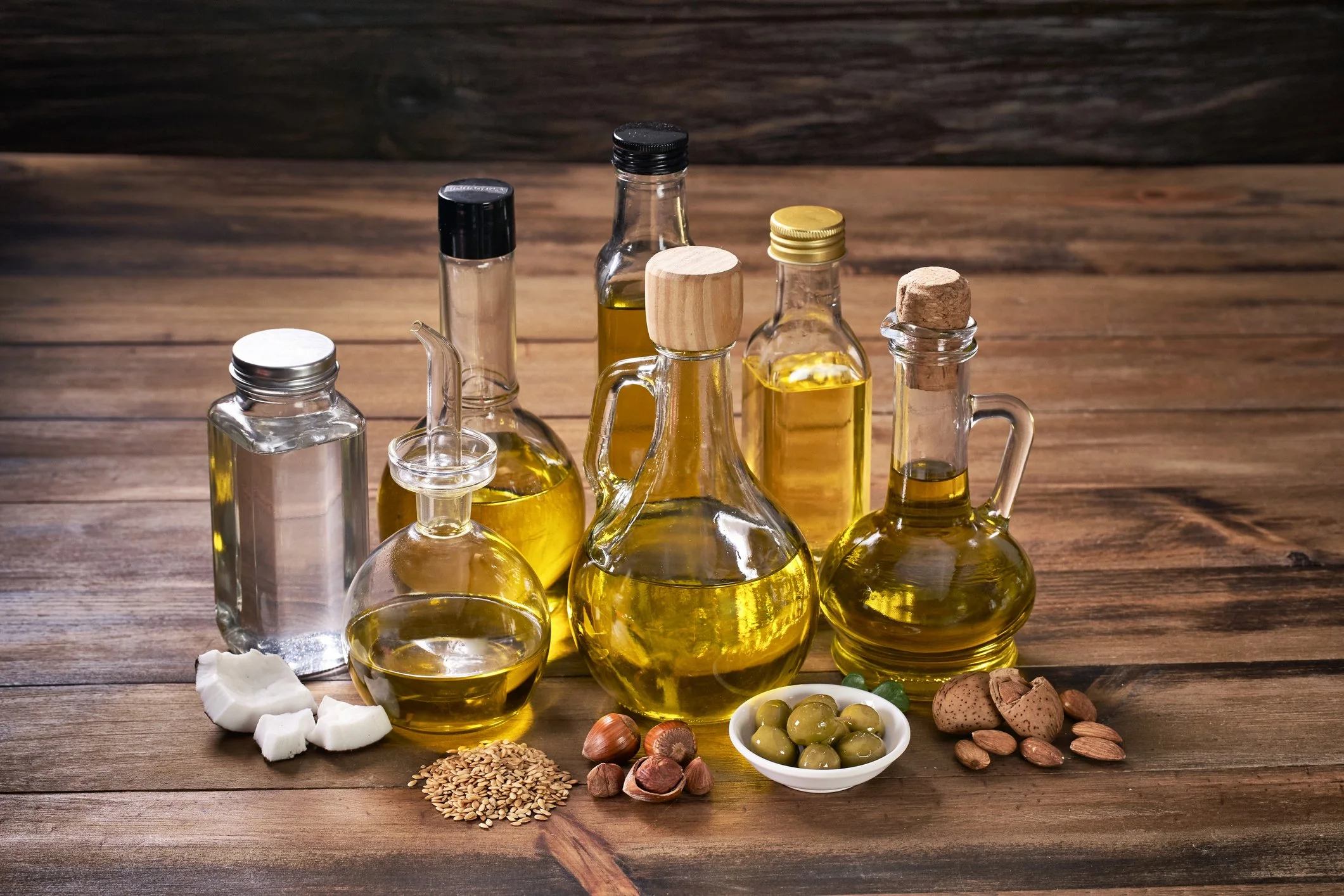Seed Oils: Are They Really That Bad for Your Health?
If you’ve been on social media over the past few years you’ve probably come across posts warning about the “dangers” of seed oils. From inflammation & diabetes to heart disease & cancer - Oh boy!
Seed oils are portrayed as dietary villains. But is there any real evidence behind the claims?
In this blog post, I’ll unpack
what seed oils are,
where the fearmongering comes from
what the science actually says about their impact on your health
What Are Seed Oils?
Seed oils are oils extracted from the seeds of plants. Common examples include: canola oil, sunflower oil, grapeseed oil & safflower oil.
These oils are widely used in cooking & food manufacturing due to their high levels of unsaturated (mostly polyunsaturated) fats & low saturated fat content.
Seed oil use extends far beyond your kitchen. They’re found in a wide range of processed foods, including deep-fried foods, baked goods, salad dressings, margarine, and even biscuits. Their versatility, stability at high temperatures & relatively low cost make them a go-to ingredient in both home cooking and food manufacturing.
The Omega-6 Debate
The main concern often raised about seed oils is their high content of omega-6 fatty acids, particularly linoleic acid.
Critics claim that high omega-6 intake promotes inflammation and contributes to chronic diseases. But this oversimplifies the science.
Both omega-3 and omega-6 fats are essential for health, meaning we need to get them from food. Omega 6’s do play a role in inflammatory processes, but they also support brain function, immunity, and heart health, just like omega 3’s.
The REAL issue is not that we’re consuming “too much” omega-6, but that we may not be getting enough omega-3’s to balance the two. Increasing your omega-3 intake (e.g. from fatty fish, walnuts, flaxseed) is more beneficial than simply slashing omega-6’s.
What the Research Actually Says
Let’s look at the evidence:
Heart health: A meta-analysis of 30 studies published in Circulation found that higher blood levels of linoleic acid (the main omega-6 in seed oils) were linked to a lower risk of heart disease.
https://pubmed.ncbi.nlm.nih.gov/30971107/
Inflammation: A 2021 review of 83 studies involving people with inflammatory bowel disease found no link between omega-6 intake and markers of inflammation.
https://pubmed.ncbi.nlm.nih.gov/33084958
Cardiovascular risk: A Cochrane review of 19 randomised controlled trials found that increasing omega-6 intake did not raise cardiovascular disease risk & lowered the risk heart attacks.
https://www.cochranelibrary.com/cdsr/doi/10.1002/14651858.CD011094.pub4/full
In short, the idea that omega-6s (and by extension, seed oils) cause widespread inflammation and disease just isn’t supported by human studies.
Context Matters: It’s About Food Quality
Now for the nuance.
Yes, many seed oils are found in ultra-processed foods, think chips, fried takeaway foods, baked goods, and salad dressings. These foods often contain added sugars, refined carbohydrates, and salt, which are linked to poor health outcomes.
So when someone improves their diet by limiting these foods, it’s the overall drop in junk food (not just seed oils) that’s benefiting their health.
Cooking With Seed Oils
Seed oils like sunflower and canola oil have high smoke points, making them a good choice for high-temperature cooking. However, repeatedly heating oils (as in deep fryers) can degrade them, potentially creating harmful compounds. This concern applies to all oils, not just seed oils.
For home cooking, variety is key. Olive oil, with its lower smoke point, is great for roasting or sautéing. Canola oil may be better for frying. Coconut oil suits some recipes (but isn’t a magic bullet). No one oil is perfect for every use.
Final Thoughts
The idea that seed oils are “toxic” is just the latest in a long line of nutrition scare campaigns. Like gluten, carbs, or GMOs before them, seed oils have become a scapegoat in the quest for simple answers to complex nutrition questions.
If you’re using small amounts of seed oils in your cooking and focusing on a whole-food, minimally processed diet, there’s absolutely no need to worry. The overall pattern of your diet matters far more than any one ingredient.
Let’s stop demonising seed oils and start focusing on what really drives good health: balance, variety, and quality in the foods we eat.
Need help building a diet that supports your long-term health goals?
Book a consultation with me and let’s make sense of nutrition together - no fads, just practical evidenced based recommendations tailored to you.

